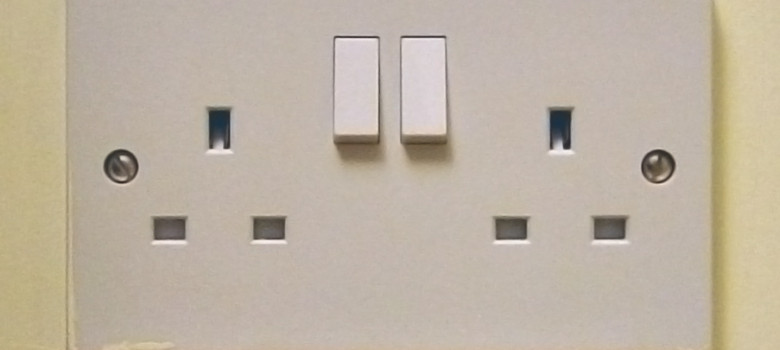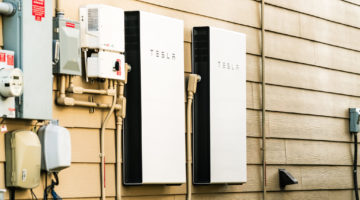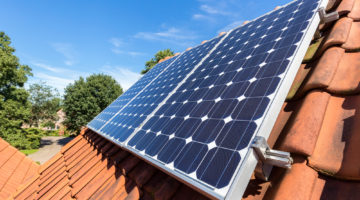
What are Voltage Optimisers?
Typically electricity in the UK is supplied at 242V but most appliances are rated between 217 and 253V. The concept is that if you can reduce the voltage supplied, then there will be reduction in your electricity bill.
Voltage optimisers reduce the voltage received by the home, to take it down to the lower limit of the rating. This can reduce energy use and power demand. Some devices have a fixed voltage adjustment whilst others regulate the voltage automatically. The unit sits between the mains electricity supply and the rest of the circuit.
Do they save energy?
There is much debate as to whether there are significant energy savings to be made for the average domestic consumer, but the technology is clearly of use if you have very large electricity bills e.g. businesses and industries.
In one large-scale pilot, commissioned by VPhase and Scottish and Southern Energy (SSE), the percentage of electrical energy savings seen by the participants in the scheme were 5.2%, while the carbon reduction was estimated as 5.0 tonnes of CO2 per household over the lifetime of the voltage optimiser (36 years). This 5.2% saving has been debated however, and other smaller studies have show less effective results.
In the non-domestic arena, energy savings of up to 15% have been seen, but more commonly the savings are in the region of 10%. The exact savings are determined by the type and relative mix of equipment that consume the power i.e. motors, lighting and heating.
However, even at the 10% savings figure, if a business is spending £50,000 a year on electricity then this represents a saving of £5,000 per year – enough to really impact the bottom line for businesses.
How do Voltage Optimisers affect appliances?
Voltage optimisers affect appliances in various ways:
- The use of motors is the largest area where voltage optimisers can make savings. It has been shown that less power is drawn on white goods like fridges and freezers, but only a few percent less. The main savings are to be had in industrial and commercial motors.
- Lighting savings can be made on magnetic ballast or incandescent lighting (because they become slightly dimmer), but there are no savings on LEDs. Converting to LED will save you far more money than any small savings gained by installing a voltage optimiser.
- Heaters will consume less power using a voltage optimiser, but consequently will produce less heat and therefore no savings are achieved – so in our opinion it is easier to simply turn the thermostat down!
The business case becomes stronger when it emerges that the payback period after installation is typically between 1 to 3 years and 40%. In some areas, grants are even available e.g in Essex’s Low Carbon Business Programme whilst the Carbon Trust offers low-cost financing for energy-efficient technology. The Energy Saving Trust maintains an online database of possible funding sources.
 Voltage Optimisers and Solar PV
Voltage Optimisers and Solar PV
If you have a solar PV system, your installer may recommend a voltage optimiser. This is because your PV system can ramp up the voltage in your property – this is how the energy is exported to the grid. Unfortunately if it gets too high, the grid could cut you off, because they are obligated to keep the mains voltage below a certain level. The voltage optimiser will help regulate this and ensure you don’t have any difficulties with the generation of electricity.
So are Voltage Optimisers worth it?
Voltage optimisers do make sense – for some properties and businesses where heating isn’t the primary use of electricity and motors predominate. They shouldn’t be installed as a matter of course however, and only where they are deemed to make a real impact on your energy use.
Think we missed something? Do you have a different opinion?
Comment below to get your voice heard…












I have a large victorian house, 5 bedsits and my flat. Had a V Phase unit which did not lead to any reduction in my electricity bills,five fridges,led lighting,PV panels (gas space and water heating). We suffered a lot of nuisance trips which stopped once the unit was removed.
Hi, I had a my free Annual MOT done by a company called ese group. I pay £7-99 monthly to this company for mainteance cover for the life of my solar PV Panels. I was with this company when my system was first installed, but canceled when they tried to sell me a complete new system, saying the one I had was out of date and work on a collected basis whereas the new system worked individually. Last year the same firm got intouch and said that the company had been overhalled and now offered a complete new maintenance package, and it included free replacement parts and labour, plus many other benifits, so I took the package on. Today a young man came, he explained what he was going to do, six or seven checks, one being the panels on the roof. He walked down the garden looked up, and said they were fine!. He then went and checked the meter and something in the loft. He came down and said there was a problem with the voltage output, and said much the same as as I have read on your page about the system shutting down each time it over heats with too much input. I had already told this man about the hard sell I had had from the other man, and he assured me that he was not a salesman, and repeated he was only here to tell me the result of his inspection. I asked what could be done, expecting to say they would replace the affected part, but he said the company couldnt do it because there was one fitted, and went on to explain many system didn’t have this component in older systems. I then said what would be the cost of this part, and it slipped off his tounge he didnt eben have to check the price. £2.800 fully installed. I said, way to expensive, and he replied I can get it down to £1.800 but thats as low as I can go, and he tried to tell me he wasn’t a salesman, load of tosh!. I said I would take a look at the market to see if I could get it done cheaper, he said I wouldn’t, and quoted that one of his customers did just this and ended up paying £4.000. Does anyone have an opinion on this please. Please excuse any spelling mistakes I may have made, even at 75 I can’t blame my age, I could never spell.
Same guy came to me and said the same thing word for word. this is all about sale.
solar panels have increased my voltage to 246 max, and 239 at other times. would an optimiser result in savings from the solar produced or only from what is still imported from the grid?